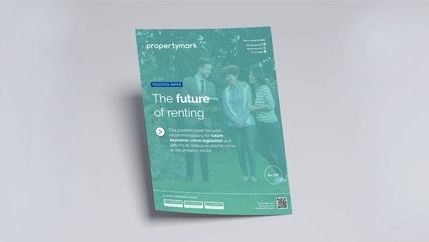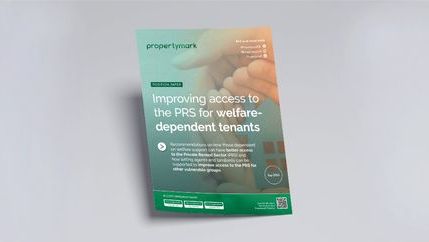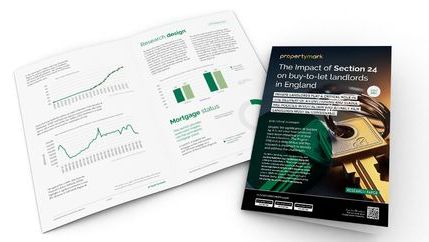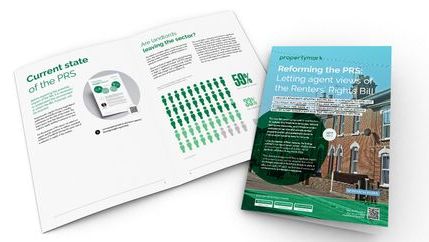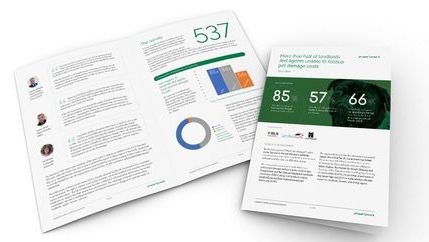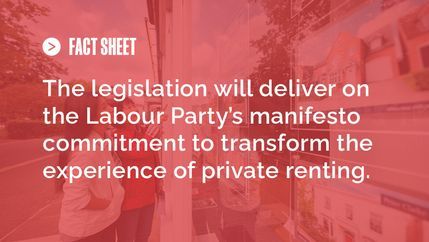The biggest overhaul of private renting in England
While we accept the need for reform, we share members' grave concerns with specific areas of the proposed legislation. However, our focus must now be on ensuring agents are fully prepared for the changes ahead. We are calling on the Government to provide clear, practical guidance on how the legislation will work in practice, particularly in light of ongoing concerns about enforcement capacity within local authorities.
When will the Renters' Rights Bill become law?
The Renters' Rights Bill has now passed its Report Stage in the House of Lords and is scheduled for its Third Reading on 21 July 2025. This is the final step before the Bill returns to the House of Commons for further scrutiny that will begin on 8 September 2025 for the start of 'ping pong' — a stage that involves going between the Commons and the Lords until all amendments are agreed.
What's included in the Renters' Rights Bill?
A Guide to the Bill was issued on 26 September 2024, it outlines everything in the Bill including:
- Abolishing Section 21 ‘no fault evictions’ with new and expanded possession grounds.
- Introduce new measures to end rental bidding wars by landlords and letting agents.
- Tenants will have the right to request a pet and landlords will be allowed to request (dependent on the outcome of amendments) insurance or a pet deposit to cover potential damage from pets if needed.
- Applying a Decent Homes Standard and ‘Awaab’s Law’ to the private rented sector.
- Creating a digital private rented sector database with key information for landlords, tenants, and councils.
- A new ombudsman service for private rented sector landlords.
- Making it illegal for landlords to discriminate against tenants in receipt of benefits or with children when choosing to let their property.
- Strengthening local councils’ enforcement powers through expanded Rent Repayment Orders and increases to fines.
What amendments were put forward during Report Stage?
Several amendments were agreed during the Report Stage in the House of Lords—reflecting Propertymark's calls for practical, balanced reform, which needs to be approved by the House of Commons.
- Extending Ground 4A to include one and two-bedroom student properties, ensuring clarity for landlords.
- Pet deposits to replace the proposed requirement for pet insurance, offering landlord protection while remaining fair to tenants.
- Clarification on surprise visits, meaning that councils can make unannounced visits, but landlords must be notified within a reasonable timeframe.
- Assured Advice to be made available for the Tenant Fees Act. By covering the act under the Primary Authority scheme, agents will have access to consistent, reliable guidance.
We continue to press for these changes to remain in the final version of the Bill when it returns to the Commons on 8 September 2025.
Propertymark's position
With major reforms to the tenancy system on the way, Propertymark is calling for clear, detailed guidance and realistic implementation timelines to support letting agents and landlords through the transition.
We continue to advocate for a fair and flexible private rented sector that works for all. Ensuring the court system is properly resourced and that possession grounds are workable remains critical to the success of the reforms.
Robust and consistent enforcement by local authorities is also essential. Without it, the intended benefits of the changes risk being lost.
Join the campaign
To improve the UK Government’s proposals and make the PRS fairer for all, further reform is needed in the following areas:
Retaining fixed term options
A tenant should be able to agree to a fixed-term tenancy when it is mutually beneficial for both parties. A fixed term gives landlords and tenants a guarantee as to the length of time the tenancy will last. The tenant has security of tenure for the full tenancy period and the landlord knows that rent payments will be made for the whole fixed-term period. This is particularly important for student lettings.
Court reform before Section 21 is abolished
The UK Government acknowledge that court reform is essential. However, proposed reforms will not be implemented before Section 21 is abolished. This will likely mean that courts already having difficulty dealing with the volume of cases cannot function. The UK Government must also provide more details and clarity on how their plan to digitise the court system and improve access to justice.
Allowing more pet friendly properties
There needs to be detailed guidance on what is meant by ‘unreasonable’ should the property not be suitable for pets. This is particularly important in rural areas where pets near livestock are unsuitable. The UK Government must also enable the level at which deposits are set to be more flexible to reflect the greater risk of renting with pets.
Qualification and regulation of property agents
Introducing minimum standards to work in the sector and statutory rules to ensure letting agents are suitably qualified will ensure parity with the social rented sector, drive up standards and help deliver a fairer private rented sector for tenants and landlords.

Members: Download the campaign toolkit
To help you understand the changes the Bill will bring and to disseminate this information to your landlords — our Toolkit provides information, guidance, training, and handy templates to help you prepare for the future as well as resources to contact your MP and Peers to inform them of your concerns.
Parliamentary process
A Bill is a proposal for a new law or a change to an existing one, presented for debate in Parliament. It can start in either the House of Commons or the House of Lords but must be approved in the same form by both to become an Act. The process typically takes nine to twelve months.
Before becoming law, a Bill has to go through multiple stages in both Houses, allowing for debate and amendments. Any changes must be agreed upon by both Houses before the Bill is sent to the King for Royal Assent.
Supporting members
We will be supporting property agents to adapt through the transition. We will be creating resources as the Bill makes it's way through the parliamentary process as the details become clearer. Members, please check you communication preferences to ensure you are receiving newsletters and legislative to make sure you stay informed every step of the way.
Featured webinar recording
28 MAY 2025
Renters' Rights Bill — what happens next?
The Renters' Rights Bill completed its Lords Committee Stage in mid-May, marking another important step toward becoming law. Following this, it will move to the Report Stage and Third Reading in the House of Lords, before any final consideration of amendments. As part of our mission to support property agents in adapting to legislative changes, Timothy Douglas, Head of Policy and Campaigns at Propertymark, Valerie Bannister PPARLA, Lettings Compliance Director at LSL Franchisor Group, and Jan Hÿtch PPNAEA, FARLA, FNAVA, Member Services Manager, Propertymark provided a detailed overview of key developments, Propertymark’s ongoing lobbying and engagement efforts, insights on how the sector may be affected, next steps and what agents should be prepared.
Training course
Renters' Rights Bill: What you need to know
Stay ahead of the curve with this essential course on the Renters' Rights Bill. Get up to speed on the latest changes as this Bill passes through Parliament, and learn how they impact both tenants and landlords.


